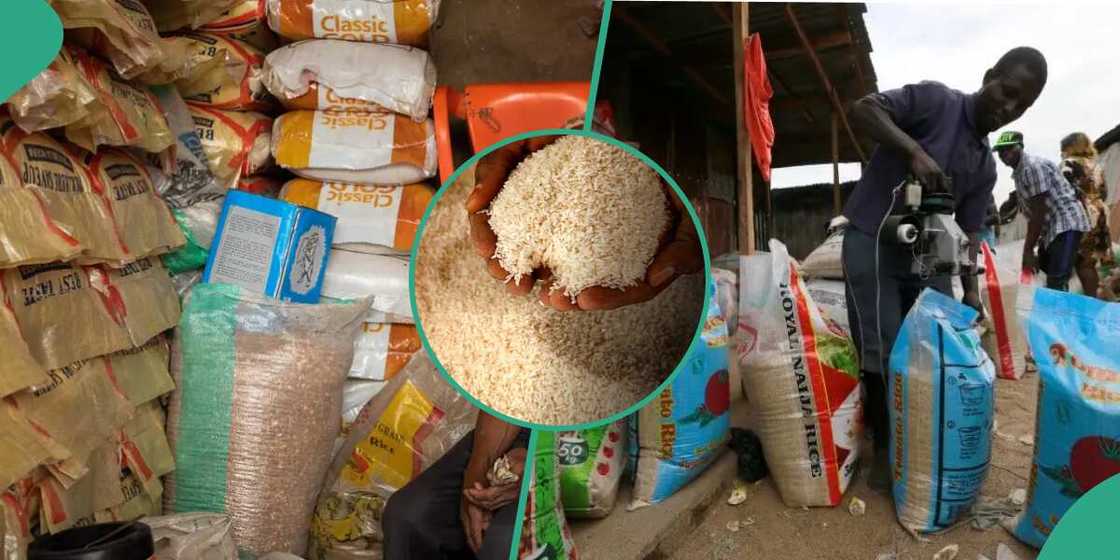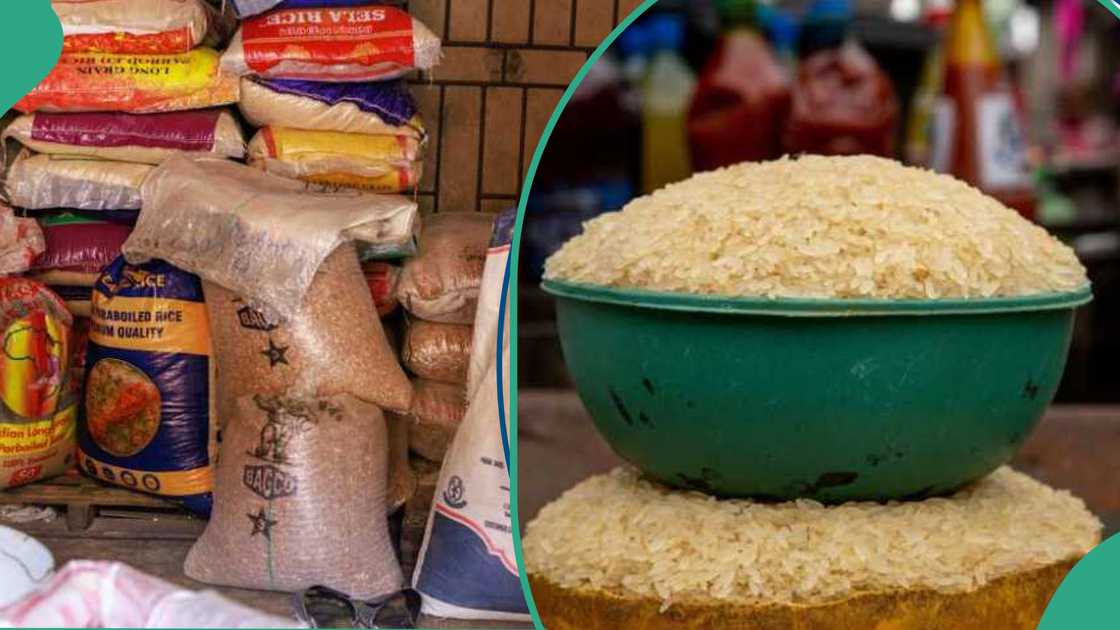Rice Prices Drop Sharply Across Markets as Local Supply And Imports Rise
- Rice prices have dropped sharply, with a 50kg bag now selling between N55,000 and N70,000 due to increased imports and improved local supply
- While consumers welcome the relief, traders are suffering losses after purchasing stock at higher prices earlier in the year.
- Experts warn that the price decline may be temporary, as market instability and fluctuating supply could push costs up again before December.
Legit.ng journalist Victor Enengedi has over a decade's experience covering Energy, MSMEs, Technology, Banking and the Economy.
The cost of rice has fallen sharply in several Lagos markets, bringing temporary relief to consumers but sparking anxiety among traders about declining profits and business sustainability.
According to the News Agency of Nigeria, a 50-kilogram bag of rice now sells between N55,000 and N70,000, depending on the brand and location.
Both imported and locally produced varieties have recorded a significant price reduction, reversing the sharp increases recorded earlier in the year.

Source: UGC
In markets such as Oyingbo, Arena (Oshodi), FESTAC Town, and Mile 12, local rice that previously sold for around N85,000 in January now goes for between N60,000 and N70,000, while imported brands, once priced as high as N95,000, are now selling between N65,000 and N75,000.
Traders count losses amid market glut
Many rice dealers have expressed frustration over the sudden price drop, which they say has left them struggling to recover capital.
At the Arena Market, Mrs. Precious Okoro, a rice merchant, lamented that the price slump came unexpectedly.
“We are selling at a loss. I bought several bags for between N80,000 and N85,000 earlier this year, and now I must sell them for as low as N65,000,” she said.
Okoro explained that while buyers are thrilled by the new prices, traders are incurring heavy losses because their funds are tied up in old stock. She urged the government to stabilise rice prices through targeted support for local farmers and better agricultural infrastructure.
Similarly, at the FESTAC Town Market, retailer Mrs. Edith Nwaruh said the drop began around August, following reports of better harvests and increased supply from the northern states.
She listed current prices as N57,000 for Pretty Lady, N62,000 for Mama Africa, N67,000 for Mama Gold, and N73,000 for Big Bull Premium.
“Both local production and imports have gone up, leading to an oversupply in the market,” she added.
Another trader at Mile 12 Market, Mr. Odion Michael, described the development as a “double-edged sword.”
“Consumers are rejoicing, but traders are hurting. What we need is price stability—sharp fluctuations make planning very difficult,” he said.
Consumers welcome relief but worry about sustainability
For many households, the drop in rice prices has been a much-needed respite amid rising costs of other staples.
At Oyingbo Market, Mr. Ben Chidi attributed the fall to improved supply channels and the government’s renewed support for local farmers.
Similarly, a rice farmer who requested anonymity said the reopening of land borders has allowed a surge of imported rice from neighbouring countries, creating a temporary market glut. He warned, however, that prices might rise again before December if supply levels fluctuate.
Consumers like Mrs. Andriana Okoromaro expressed relief, saying the lower prices had made it easier to feed their families.
“At least rice is affordable again. I can now buy a full bag instead of half—it’s a huge relief,” she said.

Source: Getty Images
Another shopper, Mrs. Oluwaseun Alade, hoped the prices would remain stable during the festive season.
“Rice is a must-have during Christmas and New Year. If prices stay this low, more families will be able to celebrate properly,” she noted.
However, Mrs. Ngozi Okolie, another consumer, pointed out that the decline in prices also reflects weakened purchasing power among Nigerians.
“Even though rice is cheaper, many people still can’t buy as much as before. The economy is tough, and demand is lower,” she added.
Smuggled rice worsens Nigeria's Forex crisis
In related news, Legit.ng reported that the Nigerian Customs Service has warned of the consequences of smuggling prohibited items, especially rice and petrol.
The Service reiterated that the continuous smuggling of these banned goods adversely affects Nigeria's economy and creates forex woes.
Speaking to journalists, the Customs Area Controller highlighted the need to stop rice smuggling so that local rice millers can succeed.
Source: Legit.ng







